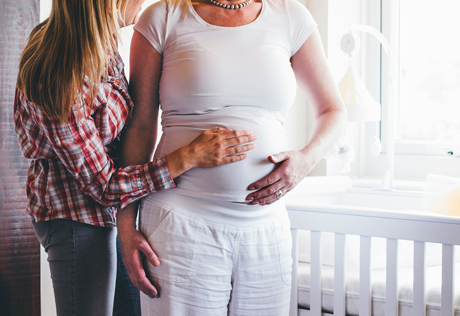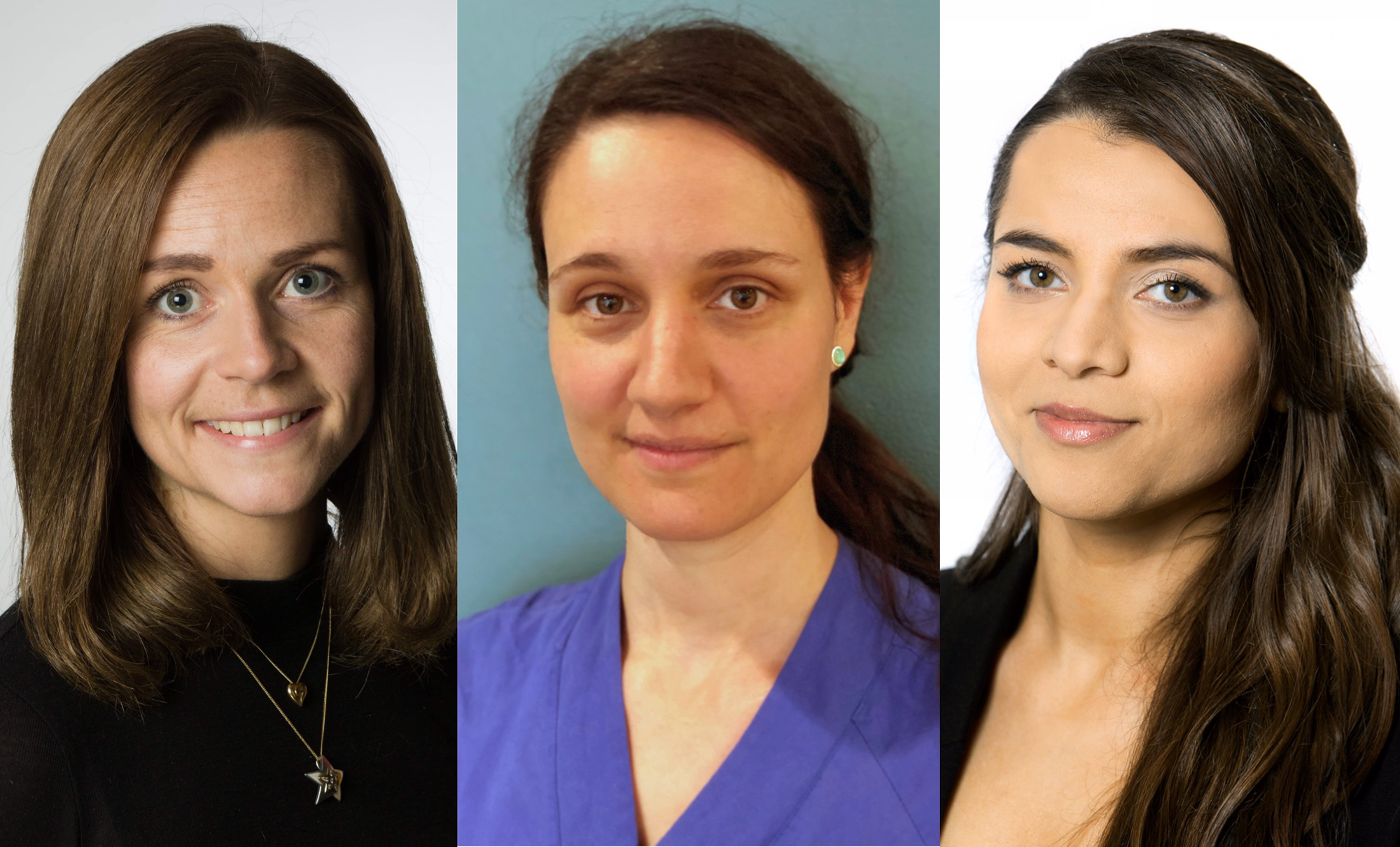- Home
- News and events
- Find news
- National Swedish COVID-19 and pregnancy study
National Swedish COVID-19 and pregnancy study
 How are pregnancy and fetal development affected by COVID-19? What happens to the health of the mother and child after the delivery? What is the experience of expected parents during a pandemic? A national study initiated from Gothenburg, covering a majority of Sweden’s birth centers, is focusing on these questions.
How are pregnancy and fetal development affected by COVID-19? What happens to the health of the mother and child after the delivery? What is the experience of expected parents during a pandemic? A national study initiated from Gothenburg, covering a majority of Sweden’s birth centers, is focusing on these questions.
The COPE (COVID-19 in Pregnancy and Early Childhood) study was initiated by Sahlgrenska Academy at the University of Gothenburg and Sahlgrenska University Hospital. It is being conducted with support of the Swedish Network for National Clinical Studies in Obstetrics and Gynecology (SNAKS).
The study’s lead researcher is Verena Sengpiel, and Lina Bergman is responsible researcher with main focus on the biological samples on a national level. Both of them are obstetricians at Sahlgrenska University Hospital and researchers at Sahlgrenska Academy.
The study is one of few worldwide that is investigating the effects of the coronavirus in relation to pregnancy by connecting biological samples with national registries and questionnaire data. The sample collection is coordinated by Biobank Core Facilities at Sahlgrenska Academy and Biobank West, a joint facility run by Region Västra Götaland and the University of Gothenburg.
Aspects investigated in the study include women’s health, pregnancy, fetal development and the newborn’s health. The researchers are also investigating possible routes of transmission of infection from an infected mother to her newborn, such as childbirth and breastfeeding.
Paving the way for sound measures
“There are some viruses and bacteria that increase the risk for intrauterine growth restriction, premature birth and fetal malformations. Furthermore, some viruses can affect the child’s development in the long term. For this reason, it is important for us to learn more about SARS-CoV-2 and pregnancy related complications,” Bergman says (photo to the left).
 With greater knowledge of the risks, healthcare services can plan, for example, to monitor pregnancy and decide when and how an infected woman should deliver her baby. To date, research in this area is limited, Sengpiel says (in the middle).
With greater knowledge of the risks, healthcare services can plan, for example, to monitor pregnancy and decide when and how an infected woman should deliver her baby. To date, research in this area is limited, Sengpiel says (in the middle).
“The study will give us an insight on how common SARS-CoV-2 is during pregnancy in Sweden, and even how asymptomatic infections might impact the mothers and child’s health,” she says.
“We will be able to follow up newborns from a mother who had COVID-19. We will look at the child’s susceptibility to infection, growth, development, and health in general. Based on these data, we can plan monitoring of the children and decide whether extra investigations or supportive measures are necessary.”
Priority for biobanks
The project involves a national group of researchers in obstetrics, neonatology, infectious disease medicine, anesthesia, intensive care medicine, and political science. The biobank sampling protocol has been designed according to standardized principle and recommendations, through Biobank Sweden.
Wahida Sarwari (photo to the right), project manager at Core Facilities, says that the biobanks prioritize projects related to the novel coronavirus.
“We have been able to act fast and coordinate the study across the country, thanks to Biobank Sweden’s networks for sample service coordinators. At the same time, we are doing well by international standards as some biobanks in other countries have shut down during this pandemic,” she says.
The study also includes questionnaire surveys, interviews and rating scales for monitoring a child’s health up to the age of one year and investigating the women’s and their partners’ experience of pregnancy and childbirth during a pandemic. Couples who are directly affected by the mother being diagnosed with COVID-19 as well as healthy couples will participate in this part of the study.
Pregnant women and their partners who wish to participate in the COPE study can find more detailed information on the COPE website, www.copestudien.se (scroll down on the website for information in English). For detailed participant information, please visit www.copestudien.se/Deltagarinformation (information available in Swedish).
Contacts: Verena Sengpiel, Lina Bergman and Wahida Sarwari
Image: Genre image from iStock